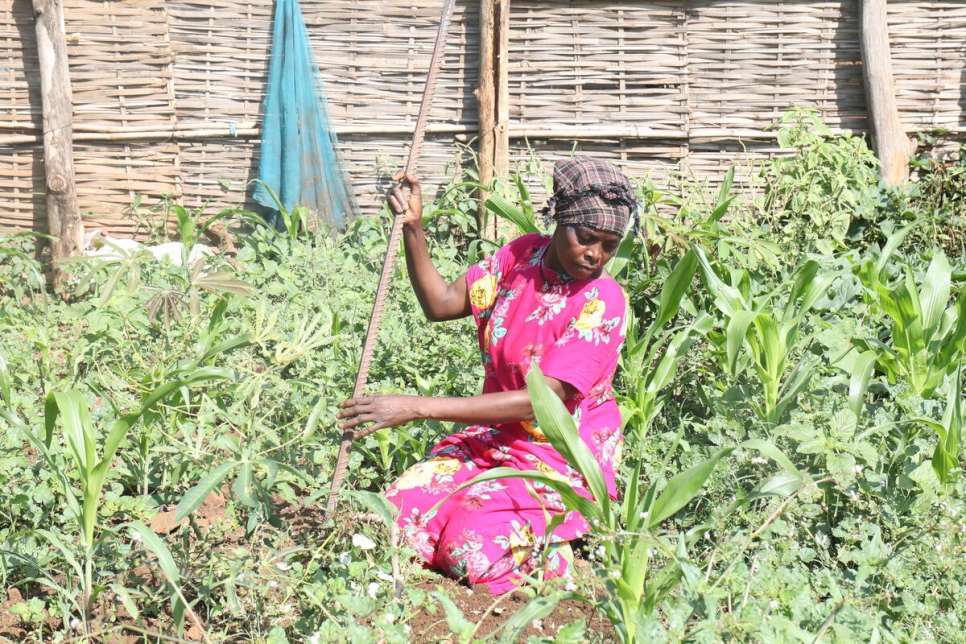UNHCR's Grandi urges greater support for Sudan and South Sudan
With nearly 7 million Sudanese and South Sudanese displaced within and outside their countries, finding solutions based on peace and development is crucial for their future.

Regina Ochala, 42, tends to her garden in Juba, South Sudan, where she returned in July 2021 following two decades of displacement in Sudan. © UNHCR/Gift Friday Noah
UN High Commissioner for Refugees, Filippo Grandi, has called for concerted efforts to find lasting solutions for nearly 7 million forcibly displaced people from Sudan and South Sudan, following the conclusion of a three-day visit to the two countries.
Grandi urged continued support for the peace process, and in particular a solutions initiative that was agreed to by the Governments of Sudan and South Sudan under the auspices of the Intergovernmental Authority on Development (IGAD) Support Platform, with support from UNHCR, the UN Refugee Agency.
The initiative aims to find lasting solutions for refugees, internally displaced people (IDPs), returnees and host communities in Sudan and South Sudan.
As he concluded his two-day visit to Sudan, Grandi met with Prime Minister Abdalla Hamdok, who is also the current IGAD chairperson. They discussed how the two countries can work together to lead the process of finding durable and sustainable solutions for their displaced populations in the region.

UNHCR's Filippo Grandi urges greater support for Sudan and South Sudan (Mary Theru, producer / Walter Kigali, videographer, editor / Joshua Werema, editor)
In South Sudan, the High Commissioner met with President Salva Kiir in the capital Juba, where they discussed the need for peace in finding lasting solutions for the country’s displaced population.
“Returning home is one solution but it is not the only one. The path to providing secure and sustainable solutions can be many, but the initiative must ensure that whether someone chooses to return on their own to South Sudan or if they remain displaced, they can do so with dignity and sense of belonging,” he said.
After the signing of the Revitalized Peace Agreement in 2018, close to 300,000 South Sudanese refugees have spontaneously returned to the country, with over 1 million more displaced inside the country also returning to their homes.
“This initiative is a unique opportunity to place the respective governments and displaced people at the center of planning for the future and so, it will require concerted efforts to ensure their sustained stability and security,” added Grandi.
"Solutions have to be found."
Many South Sudanese returnees are coming back to find their homes destroyed, with little or no infrastructure or social services.
Regina Ochala, 42, spent most of her adult life in a refugee camp in Sudan after fleeing her home in Wau in northwestern South Sudan over two decades ago. She relocated to Khartoum before recently returning home.
She planned to ask her brother to assist her but when she arrived in Juba, she was heartbroken.
“I found out that my brother had died. I was stranded,” she said.
Now, she is the only remaining member of her family as her parents and siblings were all killed in the conflict.
As she struggles to cope with life back home, many like her require support to restart their lives in secure areas.
Grandi emphasized that UNHCR will continue working with the governments of Sudan and South Sudan and rely on the support of the international donor community to assist returnees like Regina and those still displaced to live in safety and dignity.
“Solutions have to be found as part of the peace process,” he concluded.
